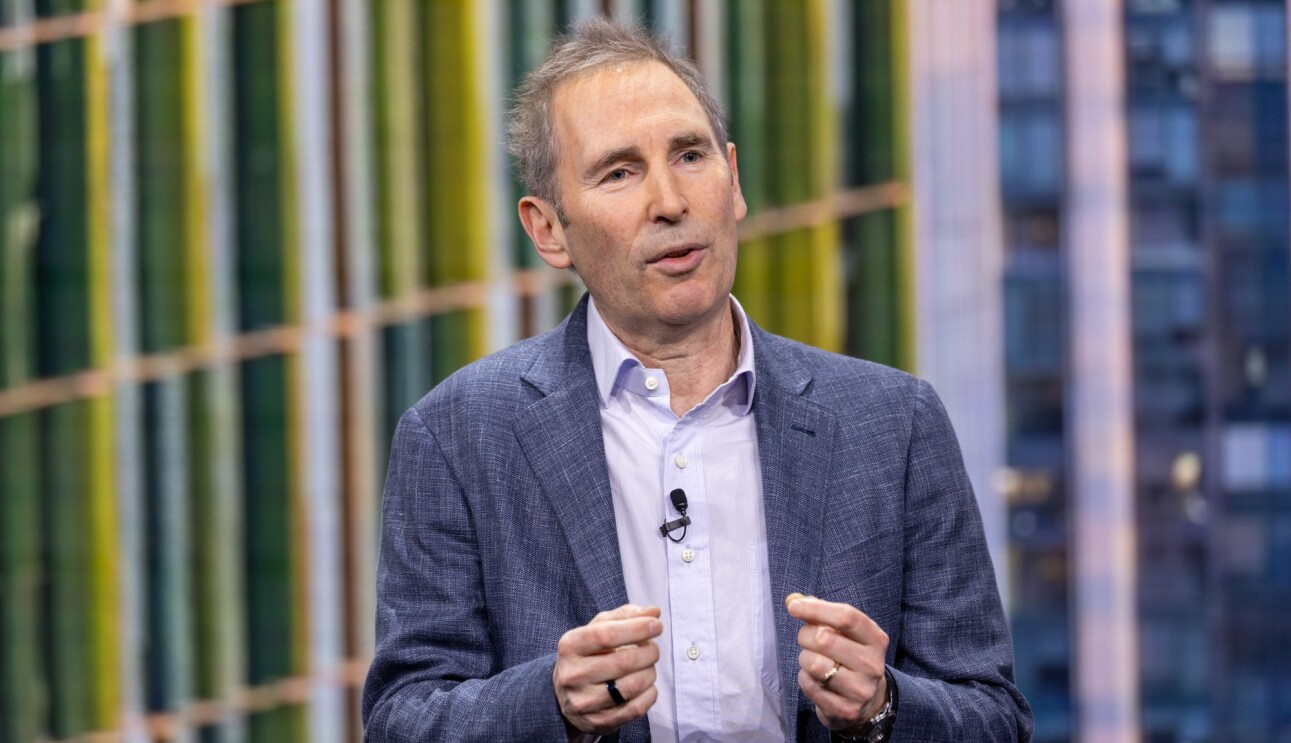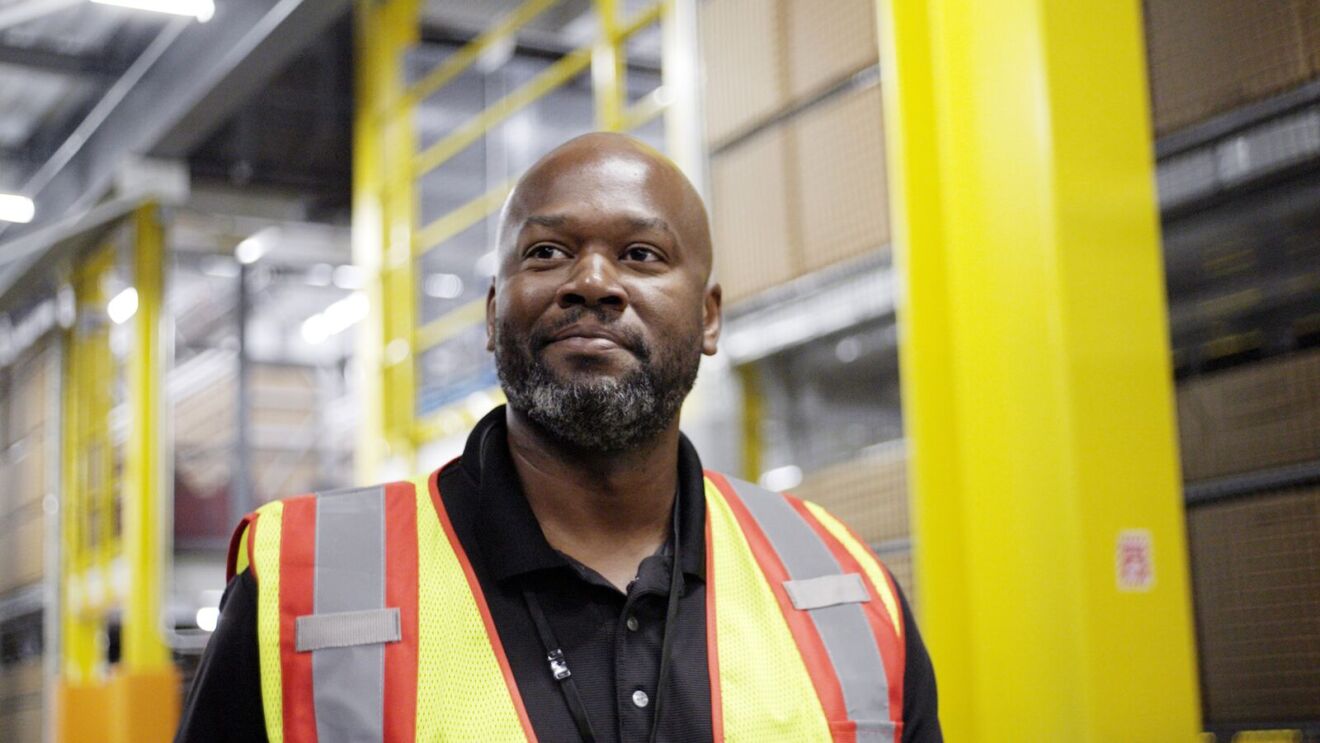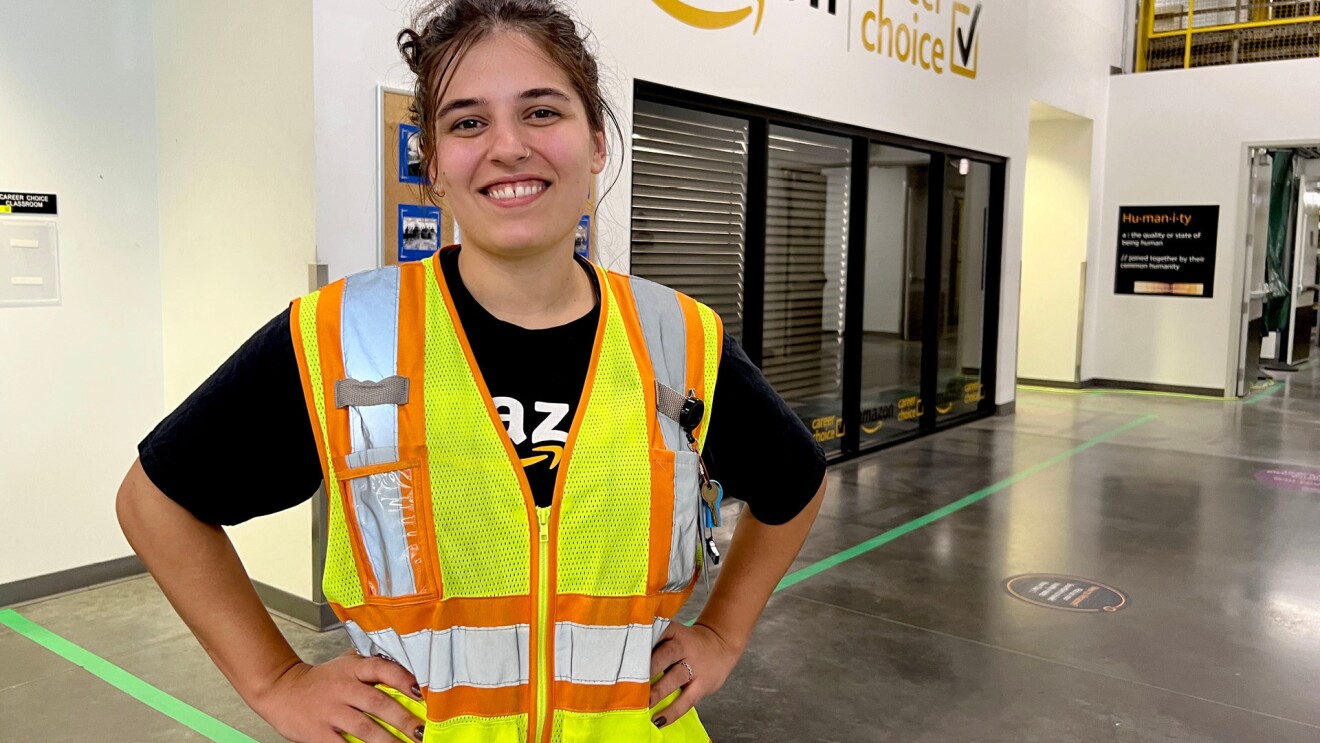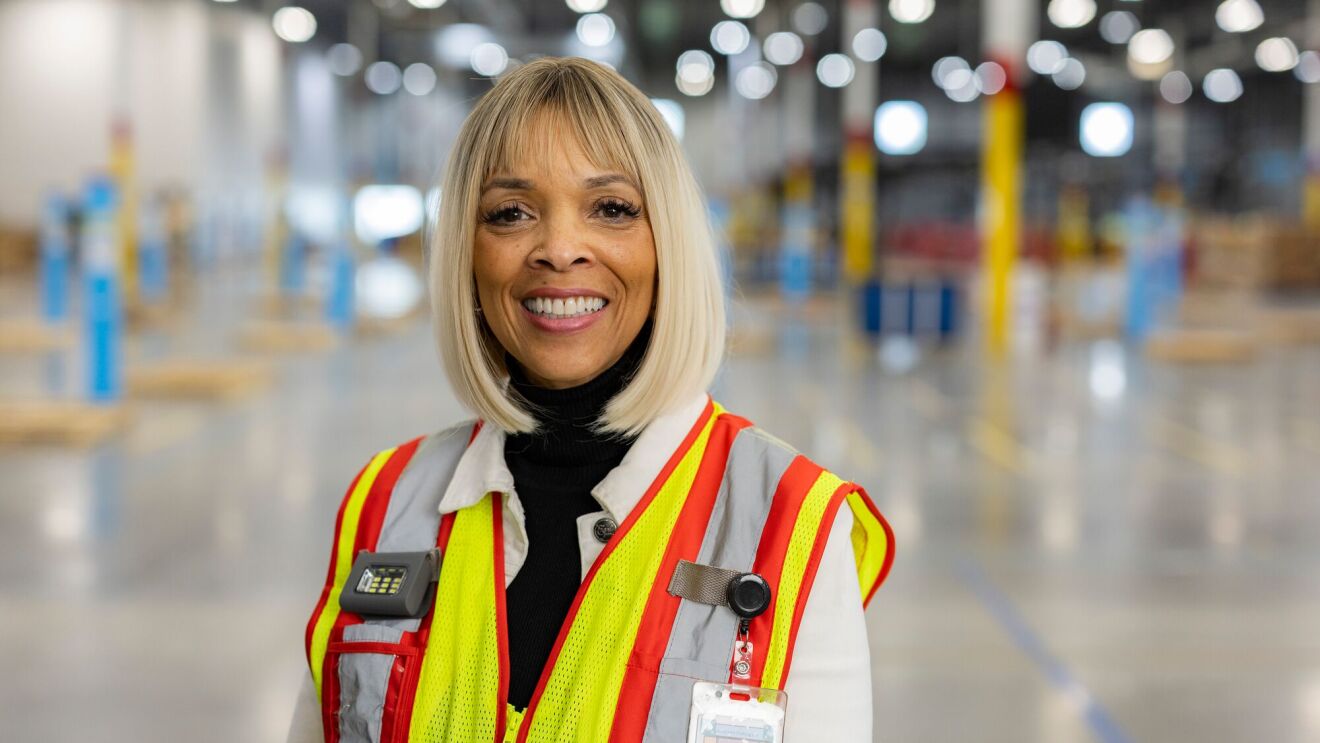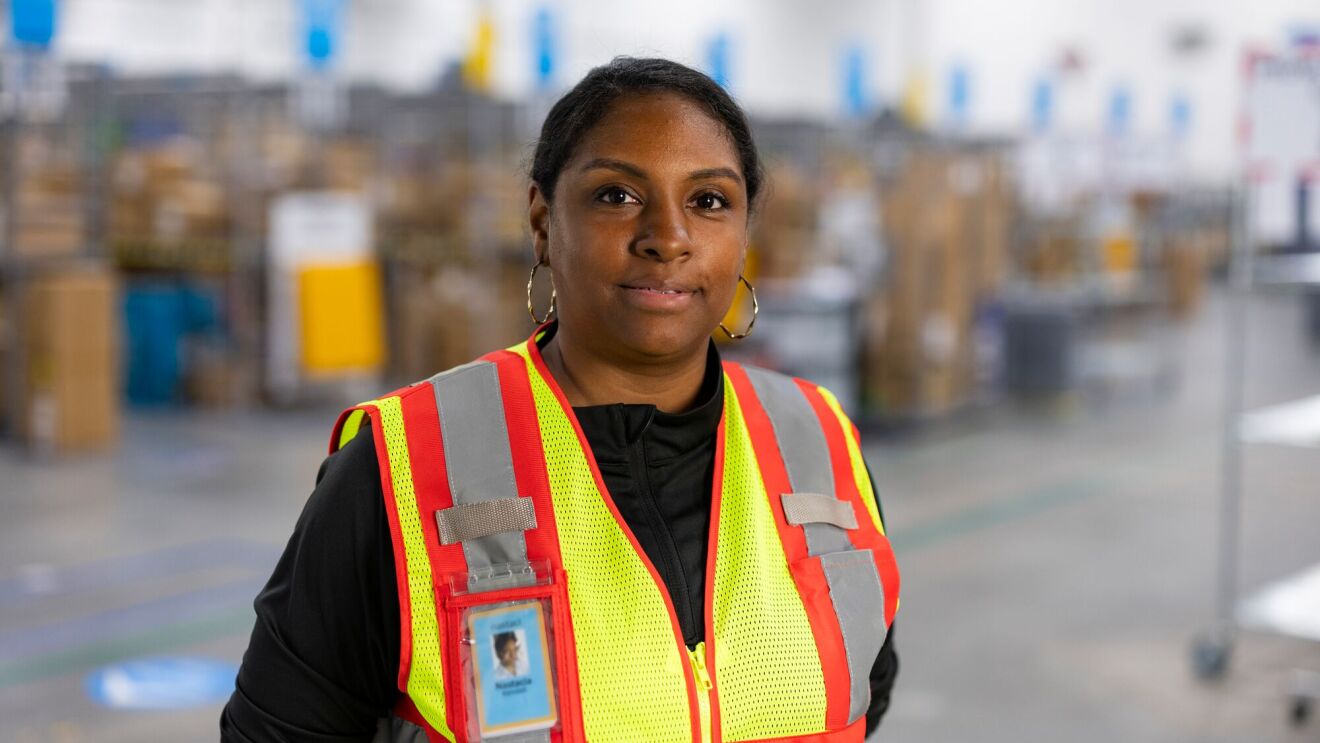It felt like a first day at school. Jeni Dunk felt a mixture of excitement and nerves as she met "classmates" at the table where one was a baby clothes buyer, another worked in marketing. Dunk, introduced herself as a manager in finance operations while the large group waited for their orientation to begin on their first day at Amazon.
Dunk still remembers the excitement of her first day, years later. Today, she brings that same energy to every interview she conducts as a Bar Raiser, a program that empowers Amazon employees to serve as objective third-party advisers during the interview process. "For many candidates, the interview process is their first introduction to the company. It's fun to be part of their journey," said Dunk. "I think about how I felt nine years ago, having that initial interaction with the interview team. I want to share that with candidates and kick-off their experience with Amazon in a positive way."
There are more than 3,600 Bar Raisers at Amazon—a population that's expanding and diversifying over time—who volunteer their time to contribute to the interview process. There are bar raisers from teams across the company, in roles ranging from product managers, software development engineers, human resources, marketing specialists, and everything in between.
The goal of the Bar Raiser program is to bring objectivity to interview loops and, in an effort to fuel innovation at Amazon, help make sure every new hire has growth potential and brings skills and abilities that are better than 50% of their would-be peers in similar roles. Amazon believes leaders raise the performance bar with every hire and promotion—and Bar Raisers are a mechanism the company uses to ensure hiring managers stay true to that commitment.
"The role of a Bar Raiser is unique because we will not be involved in the day-to-day interaction with the interviewee, so we're completely focused on making hiring decisions for Amazon, not for a specific team or role. Our ability to maintain a long-term vision—rather than focus on an immediate hiring need," said Annie Groeninger, a software development manager and Bar Raiser. "With each hiring decision, I help make sure that I continue to work with the most brilliant people in the world. I'm looking to hire people I can learn from."
Becoming a Bar Raiser
Bar Raisers are nominated by their manager, peers, or other Bar Raisers. They then complete extensive training on Amazon's 16 Leadership Principles. The process includes shadowing veteran Bar Raisers for multiple interview cycles over the course of several months. Training is voluntary and in addition to the job an individual is hired to do. It takes anywhere from three months to a year and is designed to be flexible with employee work schedules. "We're aiming for quality over quantity, which means we don't put a time stamp on the process," said Katie Anderson, a Bar Raiser program manager. "Everyone who comes through the program is different. It may take fewer than a dozen interviews for one person to graduate and 40 or more for another." Individual Bar Raiser training may take more or less across organizations, regions, and assessment of an individual's readiness.
"This training program is valuable even for the most experienced interviewers," said Groeninger, who entered the Bar Raiser program after completing 800 interviews—both as a loop interviewer and a hiring manager. "It was eye-opening to switch roles and be the person shadowing another interviewer and learning their techniques. Throughout the training process, I interviewed candidates for roles that I had no experience interviewing for before, which was challenging and fun. I was also able to interview alongside many different Bar Raisers and get diverse perspectives and feedback on my interviewing style," Groeninger said.
Once certified, Bar Raisers have three key responsibilities
As an interviewer:
- Evaluates candidate against core competencies and desired performance outcomes for the position
- Makes great global, long-term hiring decision
As a decision driver:
- Drives excellent group hiring decisions through the interview, feedback, reference checking, and debrief / hiring meeting decision process
- With hiring manager, makes final hiring decision
As a teacher/ mentor:
- Role models excellent written feedback and coaches interviewers who fail to submit valuable feedback
- Provides leadership and coaching at hiring meetings; drives to a decision
- Teaches through paired interviewing; Co-Leads interview training
Bar raisers are especially important during the evaluation stage as they facilitate debrief conversations to ensure data-driven conversations, and to guide the panel of interviewers. Interviewers provide their insights, on whether the candidate is the best hire for the company and role, to the bar raiser and hiring manager—who make the hiring decision. "The interview debrief is where I can really help drive a hiring decision," said Groeninger. "I've learned some key questions that get hiring managers to really think about the role and the decision. Some of my favorites to ask are, 'What does Amazon miss out on if we don't hire this person?' and 'What about this person makes you want to work with them?'"
Supporting hiring managers
Bar Raisers capture a holistic, data-driven picture of each candidate, helping to eliminate bias and ensure that hiring managers identify the strongest candidates. "The Bar Raiser program avoids having one person make the hiring decision. For me, as a hiring manager, it helps eliminate the voices in the room that dominate everyone else or the habit of looking to the most senior person in the room to make the decision. Instead, the Bar Raiser facilitates a transparent conversation and drives everyone to consensus," said Caley Anderson, a senior marketing manager in Amazon Music. Anderson, who is also a Bar Raiser herself, thinks Bar Raisers can be especially beneficial for new managers who aren't as familiar with Amazon's interview process. "Bar Raisers can help construct interview loops and identify which Leadership Principles need to be addressed," said Anderson. "After the interview, they can be extremely helpful ensuring that the hiring manager has everything they need to make a decision and that they're not being swayed by one voice."
Connecting with candidates
Bar Raiser Groeninger has interviewed more than 1,300 people over her 12 years at Amazon. While she doesn't remember every person she has interviewed, there are a few who stand out. "It’s really inspiring to recognize top talent, hire them at Amazon, and then follow their careers. For example, I was so proud that one candidate I interviewed had gone from an entry level software development engineer role to two levels above within five years," Groeninger said. Her favorite story, however, happened earlier this year. "Two years ago, I was in Croatia at a hiring event and interviewed dozens of people. Just this year, in June, I switched teams and realized that four of the people I interviewed in Croatia were on the team in Vancouver, B.C. that I was joining," she said. "It’s funny how things work out."




